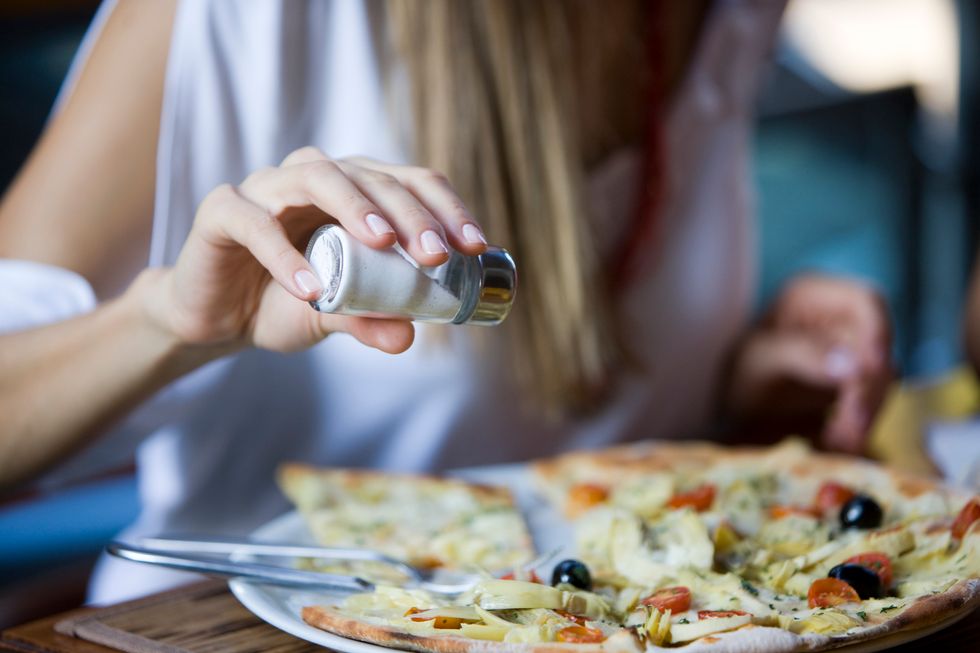
iStock.com/webphotographeer
Don't Count on Healthy Foods to Blunt Salt's Harm
An otherwise healthy diet isn't going to offset damage to your heart from too much salt, a new study suggests.
Mar 06, 2018
Jul 20, 2022
Cardiovascular Diseases
Learn about our editorial policies

MONDAY, March 5, 2018 (HealthDay News)—An otherwise healthy diet isn't going to offset damage to your heart from too much salt, a new study suggests.
"Our latest findings show that the adverse relation of salt intake to blood pressure is not counteracted or reduced by other nutrients consumed, including about 80 that we assessed," said researcher Queenie Chan.
Read More: 5 Steps fo a Heart-Healthy Diet
And since most dietary sodium comes from processed and prepared foods, the study authors said that the only solution is to regulate salt at the manufacturing level.
"As salt is almost everywhere in the food supply, the food industry needs to reduce its addition of salt in food processing," said Chan, a senior research officer at Imperial College London's School of Public Health in England.
High-salt diets lead to high blood pressure, a major cause of heart disease and stroke, the researchers pointed out. And very little sodium comes from the salt shaker on the table.
About three-quarters of the salt Americans eat comes from processed, prepackaged and restaurant foods, the American Heart Association says.
The association recommends adults consume no more than one teaspoon of salt—about 2,300 milligrams (mg) of sodium—a day in total. And most adults would do better with 1,500 mg daily, the group advises.
But one can of soup alone can have as much as 1,800 mg of sodium, experts have warned. Commercially made breads and rolls, cold cuts, cheese, and savory snacks like chips, crackers, and pretzels are other high-sodium foods.
This new study finds that salt's adverse effects on blood pressure cannot be blunted by augmenting the diet with fruits, vegetables and other nutrients, Chan said.
Water won't help either, one nutritionist said.
"I have patients who say that since they drink extra water while eating high-sodium foods, such as take-out Chinese food, it lowers the sodium in the meal," said Samantha Heller, a senior clinical nutritionist at NYU Langone Medical Center in New York City.
"Unfortunately, this is not the case," Heller said.
If a frozen pizza, chicken pot pie, or a ham and cheese sandwich contains 1,340 mg of salt, then that is the amount your body has to manage, whether you try to dilute it or not, Heller explained.
One solution to reducing salt intake, she said, is to read nutrition labels on foods and make more foods fresh at home.
"This can be done with a bit of forethought and planning and, ultimately, will help save money, too," Heller said.
To help lower high blood pressure, she recommends potassium-rich meal plans like the DASH diet (Dietary Approaches to Stop Hypertension).
Potassium works with sodium to help maintain the body's fluid and electrolyte balance, she said.
This new study found that at lower levels of 24-hour sodium excretion, potassium intake mitigated the sodium-blood pressure relation, but not at higher levels.
"A diet high in salt indicates that the diet is high in ultra-processed foods like hot dogs, frozen pizza, fast and junk foods like chips, commercially baked products (breads) and prepared foods, and low in potassium-rich vegetables, fruits, legumes and grains," Heller said.
For the study, Chan and colleagues looked at data on salt consumption and the consumption of 80 nutrients, including proteins, fats, vitamins, minerals and amino acids. All might affect blood pressure, the researchers said.
Also included in the review were data on urine levels of salt and potassium.
The study population was made up of more than 4,600 women and men aged 40 to 59 in the United States, the United Kingdom, Japan and China.
The report was published online March 5 in the journal Hypertension.
SOURCES: Queenie Chan, Ph.D., senior research officer, department of epidemiology and biostatistics, School of Public Health, Imperial College London, United Kingdom; Samantha Heller, M.S., R.D., senior clinical nutritionist, NYU Langone Medical Center, New York City; March 5, 2018, Hypertension, online
Copyright © 2018 HealthDay. All rights reserved.